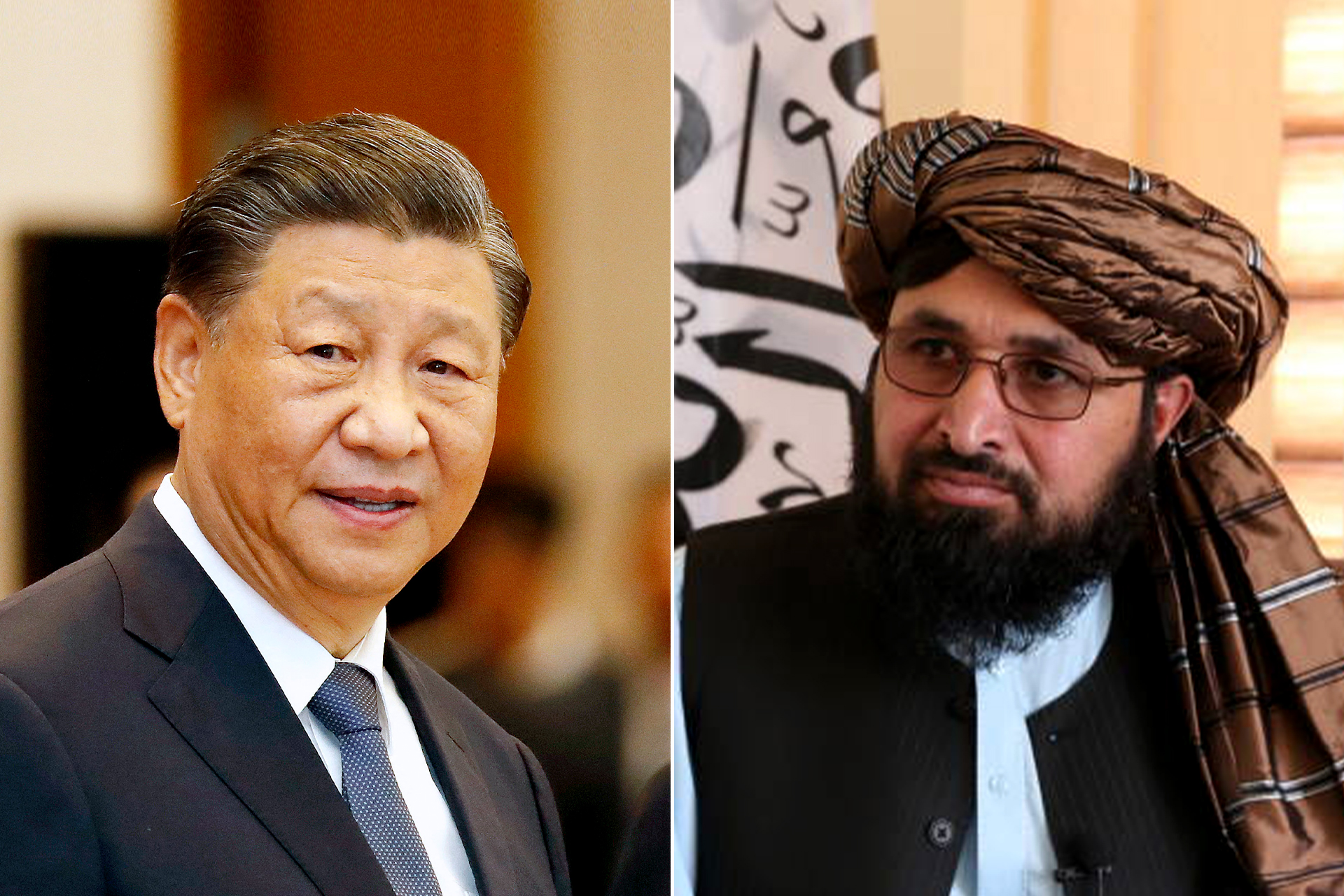Afghan Ambassador Bilal Karimi (right) and Chinese President Xi Jinping (agencies)
KABUL -
On Tuesday, Chinese President Xi Jinping received the credentials of ambassadors from several countries, including neighboring Afghanistan, which is the first official recognition of the Taliban-led Afghan government by a powerful country like China.
But Beijing's approach, which is to exchange ambassadors without formal recognition, allows it to maintain its relations while not fracturing the rest of the world.
China is the only country that sent its ambassador, Zhao Xing, last August, to be its 16th ambassador to Kabul, and in return, it received the Afghan ambassador, Mawlawi Bilal Karimi, in an official ceremony in the Great Hall of the People, along with the ambassadors of Cuba, Pakistan, Iran and 38 other countries, in a first step. One of its kind in diplomatic relations with the Taliban.
Afghan Ambassador Bilal Karimi: This step will open the way for other countries soon (Afghan Foreign Ministry website)
Chinese outlook
A source in the Afghan Foreign Ministry told Al Jazeera Net, "We told the Chinese authorities a year ago that we were ready to send an Afghan ambassador, and we did not feel during our dealings with the Chinese that we were an unrecognized country, and they were dealing with us as an official country. I believe that the rest of the countries will choose this path, and that things will change." "The hand of the international community waiting for the United States."
Experts on Afghan affairs believe that China has become certain over the past two years that the current Afghan government is committed to the promises it made during its dealings with neighboring countries, and that it will not allow its interests to be threatened from Afghan territory. It saw that official dealing with the Taliban is in its interest, and the Afghan government accepted De facto, China records itself as the first country whose president accepts the credentials of the Afghan ambassador.
Afghan government spokesman Zabihullah Mujahid told Al Jazeera Net, "China has understood what the rest of the world does not understand. We are not in a unipolar world, and I ask Russia, Iran and other countries to take similar steps and develop bilateral diplomatic relations with Kabul along the lines of China."
During the first rule of the Taliban movement in the period between 1996 and 2001, the movement hosted hundreds of Uighur militants from China, and the United States arrested 22 of them for years in Guantanamo Bay, but the current Afghan government evacuated the Uighur militants from the border areas with China to the western regions of Afghanistan. So that Beijing is not worried about any threat.
A source in the Afghan Foreign Ministry told Al Jazeera Net, “After we came to power, the Chinese authorities submitted reports about the presence of Uighur militants, and after a while we became certain of the accuracy of the reports, and we learned that a third country had tried to influence China’s position on the new government, but we proved to China that we are obligated not to use the lands.” "Afghanistan is against them, and they realize that."
Conservative feedback
Hours after Chinese President Xi Jinping received the new Afghan ambassador, major reactions arose at the international and regional levels, as the United States asked China to clarify the matter, and asked whether China had officially recognized the new Afghan government.
The Afghan Resistance Front, which opposes Taliban rule, said that “the Chinese decision is very disturbing,” and that it is “a violation of international and diplomatic norms.” A source in the Front told Al Jazeera Net, “We consider China’s decision against the will of the Afghan people, and we call on the international community to unify its position against the Taliban government.” And refrain from accepting its representatives as an official body, because it does not represent the Afghan people.”
The importance of the step
China's recognition of the new Afghan government and acceptance of its ambassador constitutes an important step, but Afghanistan will remain isolated unless other countries recognize the current Afghan government. Even the United Nations has refused to grant the Afghan seat to Taliban representative Suhail Shaheen.
The new Afghan ambassador, Mawlawi Bilal Karimi, told Al Jazeera Net, "This is a good step in the framework of relations with China, and is in the interest of both countries. We must exploit the current circumstance to develop our country, which has been exhausted by war, and I strive with all my might to be a bridge between the two countries, and China is an important country in the region and everyone cares." relations with it, and this step will open the way to other countries soon.”
As the former Afghan ambassador to China, Javed Qaim, told Al Jazeera Net, “We can say that the Chinese move is a recognition. The message is clear and unambiguous, as the president of any country will not accept the credentials of an ambassador unless he recognizes his government. In this case, the Chinese leadership treats the Taliban ambassador in the same way as it does.” "It was treated by other ambassadors, which is a clear indication of recognition, even if China did not declare it."
The exchange of ambassadors between Afghanistan and China under the rule of the Taliban movement, which has not yet received any official international recognition since it came to power, comes within the framework of Chinese goals aimed at strengthening its influence and filling the American vacuum in Afghanistan.
Source: Al Jazeera

